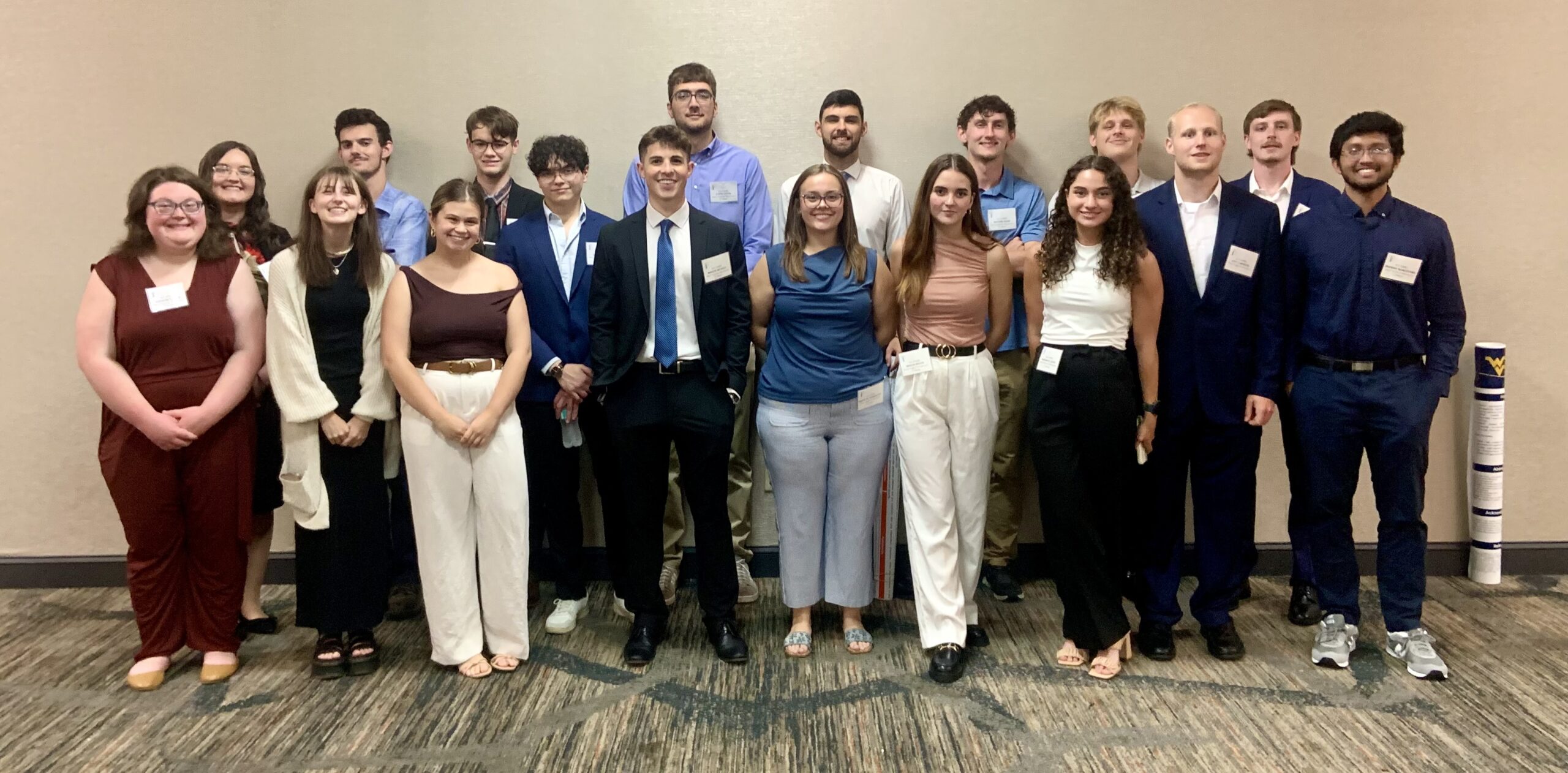about
News
BUCKHANNON, West Virginia – Twenty-one West Virginia Wesleyan College students gained valuable experience this summer through a variety of research internships that culminated with presenting their research at the INBRE Symposium held at Marshall University.
Curtis Litton ‘26, of Duck, West Virginia, gained experience at WVU’s Health Sciences Center under the INBRE program, investigating the impact of Type 2 diabetes on heart function. The research focused primarily on the effects of diabetes on mitochondria, which are organelles that play a critical role in producing the energy needed for the heart to pump properly.
“We came away with some intriguing results which I was then able to present at INBRE’s summer research symposium at Marshall University,” Litton said. The internship was a great way for me to not only gain more experience in the field of biomedical research but also to learn more about myself. I feel as though it gave me great insight as to how a career in scientific research would work for me and helped solidify my intent to pursue that career path.”
Annalise Gentilozzi ’26, of Clarksburg, West Virignia worked on a retinal gene therapy project focused on PROM1-associated cone-rod dystrophy. I was responsible for preparing and analyzing an animal model that received AAV-PROM1 subretinal injections,” she said. “My work included cryostat slicing of retinal tissue, immunohistochemistry and expansion microscopy to visualize structural details of the outer nuclear layer.”
“This experience shaped both my technical and professional skills,” Gentilozzi said. “I developed precision and dexterity in lab procedures. When looking towards a career in dentistry, these skills directly translate to the fine motor skills required in dentistry. Being a part of the research team showed me how science can directly impact patient care, which ultimately shows the reason why people go into health care.”
Mariam Al-Zoubi ’27, of Scott Depot, West Virginia, spent her summer at Marshall University studying pro-inflammatory cytokines related to the pathogenesis of Inflammatory Bowel Disease.
“Using methods of tissue culture, protein extraction and Western Blot, I studied the expression of certain pro-inflammatory proteins in intestinal mucosa,” she said. “This experience was very beneficial for me because not only did I become equipped with knowledge about the importance of literature and differing research methods in the lab, I was also able to work in a professional setting that allowed me to expand on my ideas for my future.”
ABOUT WEST VIRGINIA WESLEYAN COLLEGE
West Virginia Wesleyan College (WVWC) is a private, four-year residential liberal arts and sciences college in Buckhannon, West Virginia. A tradition of excellence for 135 years, West Virginia Wesleyan is home to 14 Fulbright Scholars. The Princeton Review ranked Wesleyan as one of its 2025 Best Colleges in the Mid-Atlantic Region of the United States. U.S. News & World Report’s 2025 Best College Rankings designated Wesleyan ninth in Best Value – Regional Universities (South). WVWC offers students nearly 60 majors and 40 minors; graduate programs in athletic training, business administration, creative writing, nursing and clinical mental health counseling; 20 NCAA Division II athletic programs; multiple performing arts groups; and more than 50 organizations. Founded in 1890, the College is closely affiliated with the United Methodist Church and abides by the Wesley doctrine that emphasizes service to others. For more information, visit wvw

Front
- Addison Taylor
- Janna Miller
- Annalise Gentilozzi
- Omar Sadek
- Mason Nichols
- Madelyn Armstrong
- Megan Brozik
- Miriam Al-Zoubi
- Clifford Carpenter
- Kiran Nandigama
Back
- Autumn Russell
- Rafe Riley
- Drake Odell
- Curtis Litton
- Jack Monks
- Hayden Dodd
- Caden Carpenter
- Colten Workman
Not Pictured
Joseph Liveo, Luke Huggins, Bruce Anthony, Kaiden McDaniels and Otis Samuel.

